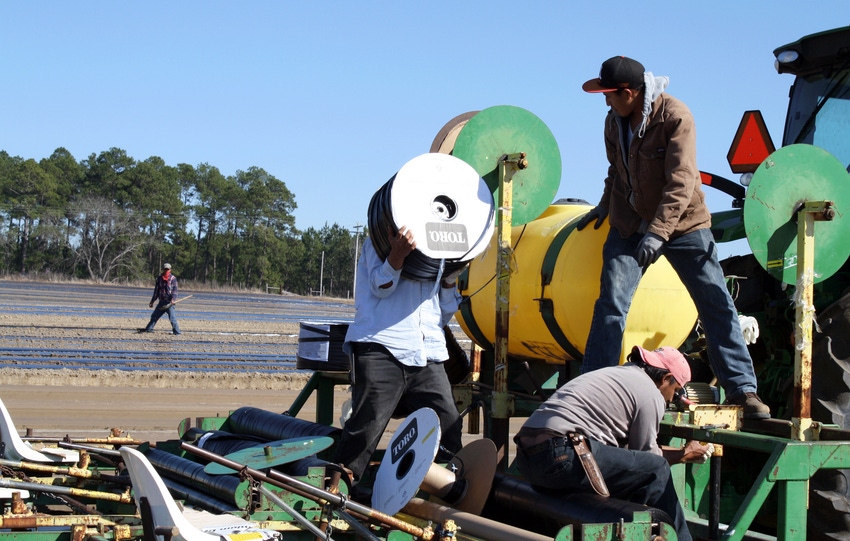June 22, 2016

Do it the legal way and you run the risk of losing a crop. Do it the less-legal way and you might get the crop but run the risk of losing much more. This is the fuzzy quandary too many farmers in the Southeast face and one that can only live and be sustained in the surreal realm of a bureaucracy.
My first year as a farm reporter was 1997, the same year I did my first story on the pitfalls and bureaucratic mishaps of the federal H-2A agricultural worker program. And 19 years later, nothing has changed.
The Immigration Reform and Control Act of 1986, as the name implies, reformed U.S. policy on immigration. Mostly notably the act gave birth to the H-2A program and required employers to know their workers' immigration status, made it illegal to knowingly work illegal immigrants but also made legal some seasonal agricultural illegal immigrants, at least I think that’s what it did.
The debate over what H-2A does and doesn’t do lingers to this day.
A bipartisan group of federal policymakers, 102 of them to be exact, in June sent a letter to U.S. Labor Secretary Thomas Perez and Director of U.S. Citizenship and Immigration Services León Rodriguez that pretty much said those administrating the H-2A program where not holding up their end of the deal by timely processing H-2A agricultural worker applications and visa petitions, which the departments are required to do efficiently and expeditiously.
The letter says:
“For the past two years, H-2A employers have experienced unacceptable delays in the processing of labor certifications, visa petitions, and interviews for final border crossing and arrival on farms and ranches. Already this spring, farmers from all across the country are seeing significant delays at the U.S. Department of Labor and the U.S. Citizenship and Immigration Service.”
The H-2A program is the sole legal visa program available to production agriculture in the United States.
The Congressional letter continues:
“Unfortunately, it is also clear that DOL is at times not following the statutory requirement prescribed in law to respond to applications 30 days prior to the farmer’s date of need. These delays are devastating to growers and ranchers that cannot wait to plant, tend, and harvest. DOL must comply with the law, and the failure to comply is unacceptable. This trend leaves growers fearful of a major breakdown in the system when peak demand for H-2A workers hits beginning in June.”
Rep. Sanford Bishop, Jr. (D-GA) was one of the Congressmen who signed that letter. And I'll tell you why that is an interesting point in just a minute.
Same problem and same characters
This past April, Bill Brim of Lewis Taylor Farms in Tifton, Ga, went with a group to Washington to discuss the problems with the H-2A program. Brim has used the cumbersome and arduous H-2A program since 1997.
In a written statement he said:
“We understand that USDA, U.S. Department of Labor and Homeland Security have their problems they deal with on a daily basis with as well, but they have a little bit of control over what they do. We do not with our produce. It gets ready whether we want it to get ready or not so we have to pick our crops. Right now in Georgia you have blueberries coming in; you have squash and cucumbers, and we don’t have the labor to pick it.”
Here’s the kicker for me: That first H-2A story I did back in 1997 came from a meeting I attended along with other farmers at Brim’s farm. That meeting was between the farmers and Rep. Bishop in an effort to fix some of the exact problems farmers are facing today with the program. Seems things haven’t changed much with H-2A in 19 years and neither has the participation of some of the same characters trying to make it work at least in some way.
If the problem with the H-2A program can never really be solved, then it must constantly be kept in check, right? What are farmers to do? I don’t know, but I do know that if it can’t be fixed or better patched up, the only timely seasonal workers farmers will have access to (if one current presidential contender has his way) will be the ones who are really good at climbing over or digging under walls.
You May Also Like




